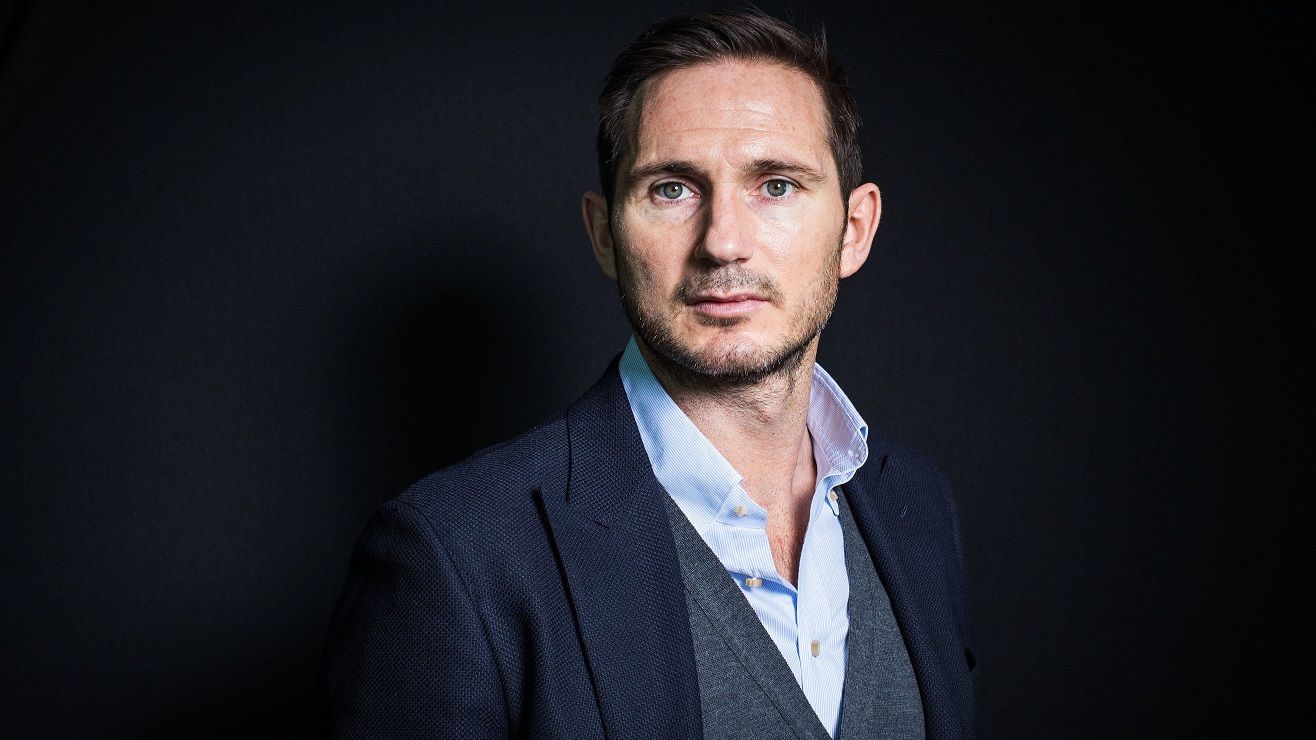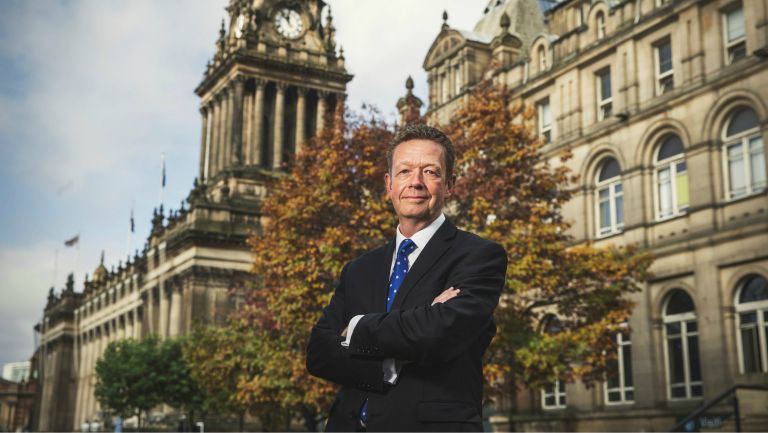
Leading Questions: Sir Chris Bonington
Sir Chris Bonington, 83, started climbing as a teenager in the 1950s and went on to become the UK's most celebrated mountaineer

Ahead of the English Championship play-off final between Aston Villa and Derby County, we look back at our Leading Questions interview with Derby County Manager Frank Lampard OBE. In our regular series focusing on what it takes to be a good leader, the former Chelsea midfielder discussed gaining the respect of your peers, the importance of humility – and who he believed was the Premier League’s best ever player.
When did you realise you had the attributes to lead others?
It was probably a year or two into my Chelsea career. When I first stepped into the dressing room I was nervous – I was 23 years old and surrounded by all these brilliant footballers. However, as I grew in confidence and cemented my own place in the team, I started to think about the impact I could have on others.
Of course leadership isn’t solely about confidence. Football is an extremely competitive environment and you have to win the respect of your peers. For me, the best way to do that is through hard work and professionalism.
If you’re setting the right example and showing that you’re doing the right thing then people will respect you.
Football is an extremely competitive environment and you have to win the respect of your peers. For me, the best way to do that is through hard work and professionalism. If you’re setting the right example then people will respect you.
What are the most important attributes that every football captain needs?
First and foremost you need strength of character. In football you spend your career working towards high pressure moments, whether it’s a cup final or a penalty shootout. You need captains who aren’t consumed in themselves, individuals who are going to make a difference to others around them. They have to be able to take the pressure out of the situation – the more you can help everyone focus on the job in hand, the better the team will perform as a whole.
You also need humility. When you look at leaders within the game, they are people who are instantly respected by others. People see the way they carry themselves and want to adapt their own game accordingly.
Having said that, there are many different types of leaders. I myself was more softly spoken, I would set examples in the way I trained and played. Whereas someone like John Terry was far more naturally suited to being a leader. He would lead in the way he spoke, the way he transmitted his voice to others and the gestures that he used.
What’s the toughest thing about being a leader in football?
The toughest thing is sacrificing your own performance for the good of others around you. There are times when being a good leader can be detrimental to your own performance but it’s vitally important for the success of the team – and that’s what makes great leaders.
The interesting thing is that in good times being a leader is easy, everything tends to look after itself. It’s in difficult times that you need great leaders - you need individuals to take responsibility and lift the team, and it’s not an easy thing to do.
You mention “lifting the team”. How important is morale in a winning side?
Absolutely imperative. In all the best teams I played in you could sense a strong spirit in the dressing room. Even before we entered the pitch we had a winning mentality, we knew that every single player was confident that they were going to play well.
And that confidence isn’t something you can just switch on and off. It stems from the leaders at the club and trickles down to the rest of the squad. And I think that goes for any sport or any competitive environment, if you can forge a strong team spirit then you’re far more likely to perform well.
If you noticed a teammate wasn’t performing to the best of their ability, how would you approach it?
It’s a tough thing but as a leader it’s a very important part of your job. It’s easy to criticise, but I don’t think that has a positive effect. What you need to understand is that people aren’t playing badly deliberately, no one wants to make mistakes.
So you have to encourage, because that fills the player with confidence. You have to let them know they’ve got a teammate who believes in them, who wants them to succeed. With the right approach you can get that level of improvement by being supportive.
If you disagreed with your manager on a particular topic, how would you approach them?
I think you’ve got to be careful. In football – or any organisation for that matter – there has to be a level of respect. There’s a reason that they are the manager, and that’s why they make the decisions.
However, there are times when you may disagree with the person in charge. In those cases it’s always best to approach the situation in a friendly way, and have a conversation about the issue. And I always felt that the best managers were willing to listen. They weren’t dictators, and they didn’t have insecurities where they felt they had to lay down the law. They’d often invite feedback, so they could find the best solution for the team as a whole.
You’ve recently been appointed manager of Derby County FC, do you think you’ll have a particular managerial style?
I have played under some great managers and I would like to take bits from all of them. I loved the managers who gave me time, the ones I felt I had a really positive relationship with. The ones that speak to you on the pitch and off the pitch, the ones you feel comfortable with, the ones that had that attention to detail on the training ground.
I will care about my players, look after them and try to improve them all.
First and foremost, you need strength of character. You need captains who aren’t consumed in themselves, individuals who are going to make a difference to others around them.
Frank Lampard OBE at Barclays’ head office in London
Frank Lampard OBE talks leaders in football
What are your expectations for the season?
I’ve always wanted to manage a club with a big tradition and history like Derby County, so this is a huge opportunity. I have spent considerable time discussing the role and the club’s objectives with the chairman and board members.
We want to build on the club’s top-six finish in the Championship last season, while at the same time bringing through some of the excellent youth and academy talent we have at Pride Park.
Can you tell me about the Game Changing campaign that you launched with Barclays?
It’s been a great experience for me to partner with Barclays because I’ve always felt like I have an affinity with the company. In all those years we lifted Premier League titles at Chelsea, Barclays was one of the main sponsors – so it’s nice to work together on the campaign.
The Game Changing campaign is great because it brings fans closer to the sport. I was lucky enough to have a lot of great moments in my career, and those successes belong to the fans as well.
It’s all about interacting with the fans, and showing what those moments meant to them. And that’s a really special idea for me, because without the fans, football would be nothing – and we want to include everyone.
And how important is it to have that inclusivity in football?
It’s hugely important. I know Barclays works closely with Team Pride and Women in Football. These are really important, progressive organisations making important strides.
I played football for 21 years and worked in dressing rooms with people from all over the world – all different cultures, beliefs and ideas. And I learnt a great deal from that.
It helped me evolve as a player, and a person, and the game needs to continue to evolve as well.
In good times, being a leader is easy. It’s in difficult times that you need great leaders – you need individuals to take responsibility and lift the team, and it’s not an easy thing to do.
Barclays ‘Game Changing’ Campaign in Numbers
As part of its ‘Game Changing’ campaign celebrating the impact fans have on football, Barclays published a YouGov-partnered survey interviewing players, managers and fans of the 2018 Premier League teams. We pulled out the need-to-know stats:
77% of supporters think the fans act as a “12th man”
44% of fans cite quality of football as the biggest improvement in the Premier League
86% of fans think social media helps them feel closer to the playerS
43% of fans support their club because it was their local team growing up
28% of fans are primarily looking for their team to play “with heart and commitment”
17% of fans believe their team can gain an advantage by booing the opposition

Sir Chris Bonington, 83, started climbing as a teenager in the 1950s and went on to become the UK's most celebrated mountaineer

In our regular series looking at what it takes to be a good leader, we speak to Tony Walsh, Head of North for Barclays Corporate Banking

As Chief Executive of Welcome to Yorkshire, Sir Gary Verity played a crucial role in bringing the start of the Tour de France to the White Rose county for the first time

Chris Greany is Head of Group Investigations and Insider Threat at Barclays Chief Security Office

